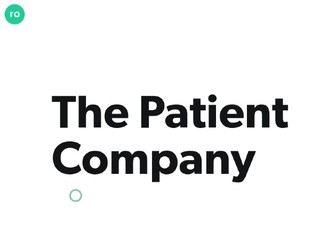 Alzheimer’s affects more than 6 million Americans, most of them over the age of 65, and is the seventh leading cause of death in the U.S. Yet, conducting clinical trials around the disease represents a major challenge for drug development and treatment: they are slower to enroll participants, take longer to complete, and are more expensive than trials in most other therapeutic areas. That also doesn’t even take into account the barriers that prevent subjects from participating in these clinical trials in the first place, such as a lack of early diagnosis, limited awareness of the disease, and the fact that it’s difficult to diagnose.
Alzheimer’s affects more than 6 million Americans, most of them over the age of 65, and is the seventh leading cause of death in the U.S. Yet, conducting clinical trials around the disease represents a major challenge for drug development and treatment: they are slower to enroll participants, take longer to complete, and are more expensive than trials in most other therapeutic areas. That also doesn’t even take into account the barriers that prevent subjects from participating in these clinical trials in the first place, such as a lack of early diagnosis, limited awareness of the disease, and the fact that it’s difficult to diagnose.
Without clinical trials, of course, there won’t be a cure for Alzheimer’s, and no way to treat it.
Direct-to-patient healthcare company Ro hopes to overcome some of those barriers by entering into a newly announced agreement with the National Institute on Aging, part of the National Institutes of Health. Together they will create the “Registry for Equal Access to Clinical Trials in Alzheimer’s Disease,” in which Ro will help identify potential patients who could participate in trials.
Ro is on a mission to be an end-to-end the healthcare technology company for primary care, from diagnosis to medication delivery; the company started out as Roman, with its first product centered around men’s health and, specifically, erectile dysfunction, before expanding to 25 different conditions. It also launched into women’s health, with Rory, as well as smoking cessation, with the launch of Zero in 2018. It has also expanded into more facets of care beyond facilitating doctor visits, including Ro Pharmacy, which prepares, packs, and ships prescriptions directly to members, as well as in-home care following its acquisition of Workpath, a company that allows healthcare companies to send phlebotomists and other providers to a patient’s home.
The company has now seen over 6 million digital healthcare visits, and it has 46 million patient touchpoints and with its technology and all of the data it has been able to collect, Ro believes it can use those insights to determine into which patients are at risk for Alzheimer’s or other types of dementia.
Through this partnership, Ro will use its telehealth platform to screen and recruit patients who may be at an elevated risk for the disease to join a registry of potential participants in NIA-conducted and funded clinical trials. The goal is to also use Ro’s technology to diversify recruitment.
Every step of recruitment, screening, and assessment can be completed over telemedicine, meaning it can be done in the comfort of patients’ homes and scheduled at their convenience.
“This is a unique opportunity to work closely with the NIA to support their extensive research on Alzheimer’s disease and related dementias and to use Ro’s technology to help advance more patient-centric clinical trials,” Zachariah Reitano, co-founder and CEO of Ro, said in a statement.
“Ro’s platform was built to advance access to innovative treatments and high-quality care for patients regardless of demographic, insurance coverage, or zip code, and we are excited to do the same for clinical research. This initiative demonstrates how Ro can help our patients achieve their health goals, whether through care on our platform or by connecting them to world-class clinical trials.”
(Image source: alzfdn.org)

















